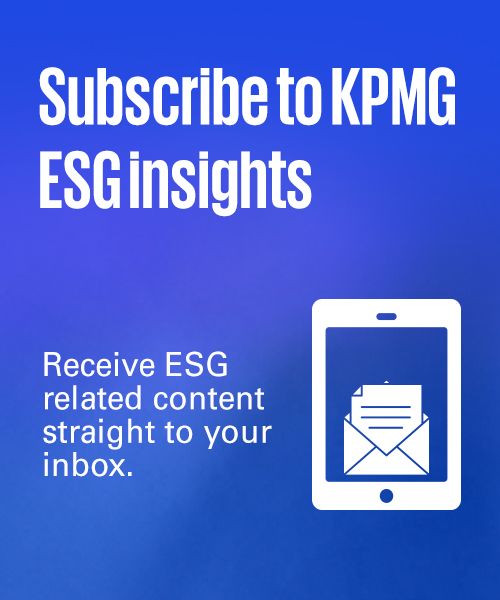Water sustains life, purifies air, moderates the climate and is fundamental for humans to thrive. The earth has about 620,000 kilometers of coastline, and over a third of the total human population lives within 100 km of an oceanic coast1. We depend on marine resources for food and the oceans produce the oxygen we breathe. Oceans and water systems also sustain millions of jobs, across fishing, tourism, energy and shipping.
On World Ocean Day 2022, let’s reflect on the impact of human actions on oceans, and the opportunity to help shape the sustainable management of the world's oceans2. Centering the intersection between human rights and the environment is particularly relevant since the United Nations Human Rights Council’s landmark decision in October 2021 to recognize the human right to a safe, clean, healthy and sustainable environment. We now have an opportunity to consider the direct impact of biodiversity loss on human rights.
For these reasons, oceans play a fundamental role in the global ESG agenda. However, the blue economy is often overlooked, and even less understood is the social component. The ‘S’ of the blue economy spans from working conditions on ships and mines to the very real impacts of climate change on island communities. There is significant work to be done to bridge the governance gap and pivot the ESG focus on ocean management. There is an urgent need to mitigate social risks and address the increasing human impact on the oceans to transition to a more sustainable blue economy.
The increased demand for mineral resources is shifting the focus from the land to the sea. The increased uptake in electric vehicles in the transition to renewable energy means an increase in demand for minerals, and the oceans resources have taken center stage in the debate. The companies behind deep-sea mining say we have no choice but to mine the ocean depths3 for the resources required for car batteries. These metals have converted an underwater plain into a battleground over the hard decisions required to address climate change4. Deep sea mining has the potential to not only impact biodiversity loss and food security but is likely to present health and pollution challenges too. Fijians have already protested deep sea mining in the Pacific5 and other conservation organizations are calling for a moratorium on the mining practice6. The social license risks associated with mining in the deep sea stem from both environmental and social concerns.
Concerns with labor conditions in the deep sea are not limited to mining companies, however. Fishing is well known to be a modern slavery high risk industry. With a workforce often comprised of migrant workers, the industry is vulnerable to severe forms of human rights abuse including being forced to work on board vessels under the threat of force or by debt bondage for up to years at a time7. The lack of enforcement of safety and labor standards contribute to the risk of human trafficking in this sector8. Where companies are operating outside of national jurisdictions, questions are raised on governance, responsibility, working conditions and access rights.
The vulnerability of communities connected to the oceans is also felt by island nations, like Fiji, Vanuatu, the Maldives and the Solomon Islands, who are on the front lines of global climate change9. Rising ocean temperatures, the decline of fish stocks, threats of extreme weather events and increasing sea level rises present urgent challenges to island nations who depend on the oceans for their livelihoods. Rising sea levels not only threatens infrastructure and homes, but also poses legal implications on territorial rights, access to resources and migration of communities seeking higher ground10. It is becoming increasingly clear that the impacts of climate change are disproportionately felt by disadvantaged communities11.
However, it’s not all bad news. Recent years have seen an increasing value placed on the involvement of local communities in the management and sustenance of the blue economy12, and increasing recognition of Indigenous marine governance. Indigenous peoples have cared for and sustainably managed oceans for tens of thousands of years. There are examples of customary marine tenure and Indigenous environmental management systems implemented from Fiji to New Zealand, based on principles of reciprocity and respect towards all living beings13. Over half of Australia’s Great Barrier Reef catchment is subject to formal Indigenous ownership, interest or co-management arrangement14. We can continue to leverage Indigenous governance and environmental management to lead to a holistic and systemic approach with long term thinking, which also centers the rights of vulnerable groups in the context of climate change.
On World Ocean Day let’s reflect on the interconnectedness of people and this blue planet we call home. It is imperative that we address the impacts of human activity on oceans and be holistic in the approach to marine governance to allow the oceans to continue their fundamental role in sustaining life and for the planet to thrive.
Related content
Get in touch
Connect with us
- Find office locations kpmg.findOfficeLocations
- kpmg.emailUs
- Social media @ KPMG kpmg.socialMedia
With special thanks to Sofia Anagnostaras, Senior Consultant, KPMG Australia
1 https://science.nasa.gov/earth-science/oceanography/living-ocean
2 https://www.un.org/en/observances/oceans-day
3 https://www.theguardian.com/environment/2021/sep/28/false-choice-is-deep-sea-mining-required-for-an-electric-vehicle-revolution
4 https://www.npr.org/2021/09/03/1031434711/your-next-car-may-be-built-with-ocean-rocks-scientists-cant-agree-if-thats-good
5 https://www.business-humanrights.org/fr/latest-news/greenpeace-stages-pacific-ocean-protest-against-deep-sea-mining/
6 https://wwf.panda.org/discover/our_focus/oceans_practice/no_deep_seabed_mining/
7 https://www.ilo.org/global/topics/forced-labour/policy-areas/fisheries/lang--en/index.htm
8 https://www.ilo.org/global/topics/forced-labour/policy-areas/fisheries/lang--en/index.htm
9 https://theconversation.com/many-small-island-nations-can-adapt-to-climate-change-with-global-support-86820
10 https://www.worldbank.org/en/news/feature/2022/04/11/on-the-frontlines-of-climate-change-small-island-states-can-lead-in-resilience
11 https://issuu.com/humanrightsdefender/docs/unswa016_human_rights_defender_publication_vol29_i/s/11165475
12 https://www.frontiersin.org/articles/10.3389/fmars.2020.00586/full
13 https://theconversation.com/why-indigenous-knowledge-should-be-an-essential-part-of-how-we-govern-the-worlds-oceans-161649
14 https://www.rrrc.org.au/wp-content/uploads/2018/09/Reef-2050-TO-and-Governamce-of-the-GBR-Flyer-24-04-18.pdf





